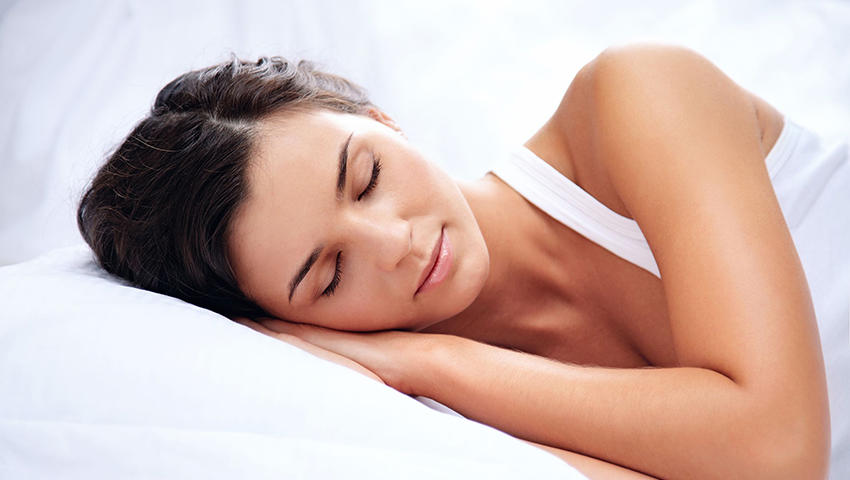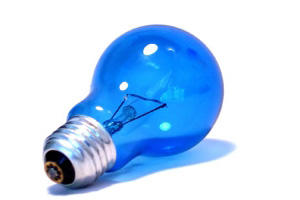Sleep is one of those things that we tend to take for granted until we battle to get enough of it. It is one of the foundations of wellbeing, no less important than following a healthy eating plan and getting enough exercise.
Bad sleep patterns have been proven to increase the chances of you developing cardiovascular problems and diabetes and increases the chances of developing depression. It also counts as one of the top contributing factors when it comes to obesity.
The problem stems from the fact that we now sleep a good deal less that in days gone by. But it is not just the amount of sleep but also the quality that has declined.
Electronics and man-made lights have a lot to answer for here. The light mimics daylight where our brains are concerned with a blue wavelength of light that makes them react as if the sun is up. Many studies have proven that the natural functioning of the brain in terms of sleeping and waking cycles are negatively affected by this light.
Luckily for us, there is an easy fix - take steps today and you can reverse the damage already done. It is quite simple...
Blue Light Is Essential During The Day But Can Cause Chaos At Night
Your brain has a very sophisticated internal mechanism to regulate patterns of sleep and wakefulness, otherwise known as your circadian rhythms. What you need to know is that this rhythm decides when we are at our most wakeful and when we want to sleep. It is not always a perfect twenty four hours though. As a result, it requires input from the outside world in order to reset the cycle. This is best done using darkness and light.
Think about it for a minute - when man evolved, we needed to be up and about during the day and sleeping at night.
Pretty simple but it must be remembered that there are different types of light. Blue light is the one that causes the sensors in our eyes tell the brain that it is time to get up. Even if a light looks white, it should be remembered that there are a number of different waves of colors that make it seem that way. Blue light is vital for alertness and productivity during the day.
Light therapy has been used to help cure depression and it has been proven that, by using blue bulbs, productivity in an office can be improved. That is all good and well but nature never intended us to be exposed to this light at night.
Modern technology, such as TVs and computers put out a lot of blue light. The brain consequently believes that it is daylight. What should happen as the outside world darkens is that our pineal glands should start to produce melatonin in order to make us feel sleepier. Blue light inhibits this function.
Research has shown that the suppression of melatonin can lead to a number of health issues. (Depression, obesity, insulin resistance are just a few). There is speculation that it is at least in part due the disrupting effect of light that we are at risk of developing lifestyle diseases.
But what are we to do - none of us want to step back into the dark ages, after all. Luckily it is pretty easy to block out this light.
What it boils down to: Being exposed to blue light at the wrong time of day can have serious effects on how much we sleep and how well we sleep.
Taking A Health Supplement
There are many health supplements on the market designed to help those dealing with insomnia. Look for a product that contains natural ingredients such as L-ornithine, valerian root, and melatonin which are proven to help you get a good night's rest.
Easily Solve This By Using Glasses That Block Out This Light
Glasses that have amber lenses are the most efficient way to solve this problem. They filter out the blue light and the sensors in your eyes thus remain unaffected. Research has shown that the use of these glasses is just as effective as sitting in the dark would be. It is just as effective as using dim light. Not only do these glasses block out the light, research has also proven that they improve sleep overall and thus mental acuity.
One of the studies had 20 participants use either glasses that blocked the light or plain glasses for a period of around 180 minutes before they were due to go to bed. The duration of the study was a fortnight. Those wearing the specialized glasses had significant improvements in terms of the quality of their sleep and their mood.
Shift workers have been using these glasses to great effect to improve sleep.
There have been no studies conducted over an extended period but considering how important sleep is for health, you are likely to find that the use of the glasses would also be linked to a reduction in illness and an improvement in longevity.
What it boils down to: Amber glasses have been proven to help reset the circadian cycle and promote better quality sleep.
Alternatives To Glasses
Glasses are not for everyone so here are some other tips to reduce your exposure.
F.lux is a downloadable program for use on computer monitors as well as for your iPhone or iPad. The software monitors the time of the day and adjusts the brightness and color of your screen accordingly. That means blue light is stopped at night. While studies have not confirmed the effectiveness of this program, anecdotal evidence is that this is a useful program.
More Tips For Insomniacs
Switch off all lights in the home at least an hour or two before going to bed. Keep a bedside lamp with an orange or red globe or use candles at this time. Block out as much light out of your bedroom as possible and consider getting an eye mask.
Make sure that you get lots of daylight exposure to reset your cycles. If for some reason you can't do so, an alternative is to get a therapy lamp that can mimic daylight and use it during the day.
What Can I Expect?
Insomnia and I have walked a long path together. I usually lay awake for about an hour before dropping off and have a tendency to wake up often at night.
Recently I ordered a set of amber glasses - the UVEX brand. They were inexpensive and work well. I set my phone up to remind me to wear them from 8:30 onwards. I find that I start relaxing after a couple of hours or so and start becoming sleepy. I haven't been using them long but I have found that my sleep quality is better. I can concentrate better throughout the day now as well.
I have just about tried every trick in the book to get better sleep. These glasses have been the best bet so far.












